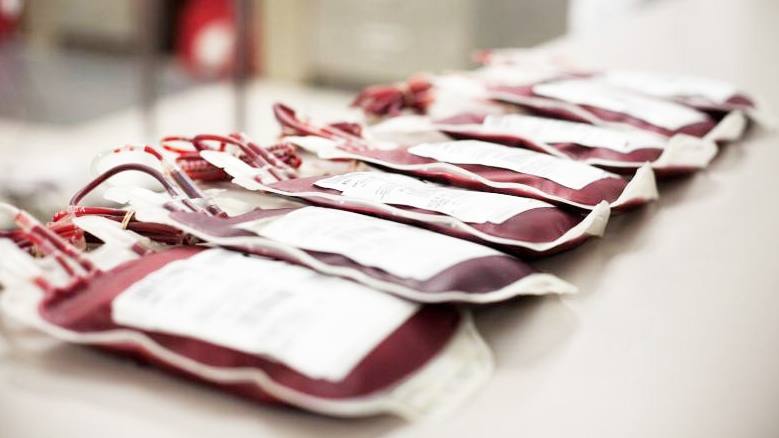-
Featured News
Ongoing need of blood donation at Mayo Clinic, nationwide

Healthy blood donors are urged to make appointments to meet the ongoing demand for blood products. Mayo Clinic and health organizations nationwide are trying to prevent a blood shortage while helping patients in need of blood products. Such patients include those in motor vehicle accidents, those undergoing surgery and those with cancer.
Social distancing and stay-at-home guidelines due to COVID-19 have made the blood donation process more challenging, but people can still donate blood. Dr. James Stubbs, chair of Transfusion Medicine at Mayo Clinic, says blood donation is a critically essential activity during the COVID-19 pandemic. Further, he says that both blood donor sites and donating blood are safe.
"Donating blood for transfusion has always been safe in our hands, and it continues to be safe during this crisis," says Dr. Stubbs. "Our staff is professionally trained to provide a safe donor experience with extensive guidelines and precautions regarding the proper procedures to minimize risk of the donor process itself plus precautions to minimize the risk of any transmission of this respiratory virus. The bottom line is that the risk for contracting COVID-19 through presentation of blood donation and participating in blood donations is extremely low."
For those who may be worried about becoming infected while donating blood, Dr. Stubbs refers to the World Health Organization, stating, "According to the World Health Organization, respiratory viruses have never been reported to be transmitted through blood or blood components; therefore, any potential risk of transmission by transfusion of blood collected from asymptomatic individuals is theoretical."
Why donating blood is vital
Dr. Stubbs says the Mayo Clinic Blood Donor Program is going to continue to need blood donors throughout the COVID-19 pandemic. "It is vitally important to support our patient care services, both surgical and nonsurgical. If blood products for transfusion are not available, many of these patient care services cannot be delivered. Blood transfusions help people sustain their lives through a wide variety of illnesses and conditions. The key is matching the supply of blood donors with the evolving demand for blood transfusions in an accurate manner."
Watch: Mayo Clinic Minute: What happens to donated blood?
Mayo Clinic Minute: Does your blood type matter when donating blood?
Journalists: Broadcast-quality video of these pkgs is in the downloads at the end of this post. Please "Courtesy: Mayo Clinic News Network."
Who is eligible to donate blood?
"Anyone who is asymptomatic and feeling well, and meets the blood donor qualification criteria for screening and testing, should seriously consider donating blood essentially any time, but this may become particularly pertinent during this COVID-19 crisis, when certain sections of the donor population might become ill themselves. A motivated, expanded blood donor pool of individuals will provide a great insurance policy for sustaining our blood supply."
To ensure safety of patients receiving blood products as well as donors, there are donor eligibility requirements. Eligible donors include those who are healthy, symptom-free from cold, flu or fever on the day of donation and meet other health requirements.
Make an appointment
Plan ahead and make an appointment. "This allows us to spread donations most efficiently over a longer period of time and evens out our inventory levels of blood components," says Dr. Stubbs.
To find out if you are eligible to give blood and find out where you can donate, check the Mayo Clinic Blood Donor Program website.
"This is a marathon from a blood supply perspective rather than a sprint. A level blood supply landscape is preferable to peaks and valleys."
Related news:
Mayo Clinic Q&A: Blood shortage due to lack of blood donors during COVID-19 pandemic
Mayo Clinic Q&A podcast: Blood donations plummet during COVID-19 pandemic
Information in this post was accurate at the time of its posting. Due to the fluid nature of the COVID-19 pandemic, scientific understanding along with guidelines and recommendations may have changed since the original publication date.
Check the Centers for Disease Control and Prevention website for additional updates on COVID-19. For more information and all your COVID-19 coverage, go to the Mayo Clinic News Network and mayoclinic.org.







